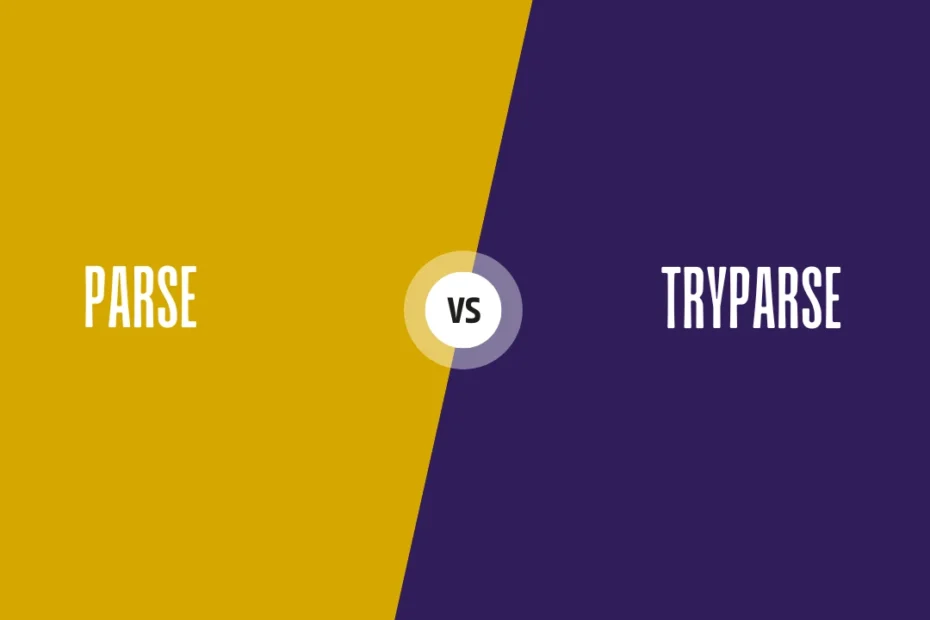In C#, both Parse and TryParse are methods used for converting strings to their corresponding data types, but they differ in how they handle potential errors during the conversion process. Here is the Difference Between Parse and TryParse in C#:
Difference Between Parse and TryParse in C#
Parse Method:
The Parse method is available on various numeric and date/time types like int, double, DateTime, etc. It attempts to convert a string representation of a value into the specified data type. If the conversion fails due to an invalid format or value, a FormatException is thrown. Here’s an example of using Parse:
string numberStr = "123";
int number = int.Parse(numberStr);If numberStr were not a valid integer string, a FormatException would be thrown.
TryParse Method:
The TryParse method is a more forgiving approach to parsing strings. It’s also available on various numeric and date/time types. It attempts to convert a string representation of a value into the specified data type, but instead of throwing an exception on failure, it returns a boolean indicating whether the conversion was successful, and if it was, it also outputs the parsed value. Here’s an example of using TryParse:
string numberStr = "123";
bool success = int.TryParse(numberStr, out int number);
if (success)
{
// Conversion was successful, use the 'number' variable.
}
else
{
// Conversion failed, handle the error appropriately.
}In this example, if numberStr is not a valid integer string, the success variable will be false, and the number the variable will be set to 0 (default value for int).
Conclusion
Parsethrows an exception on failure, making it suitable when you expect the input to always be in the correct format.TryParsereturns a boolean indicating success and doesn’t throw exceptions, making it more suitable when you’re unsure about the quality of the input data.
Using TryParse is generally recommended for scenarios where you want to handle potential errors gracefully without crashing your application.
